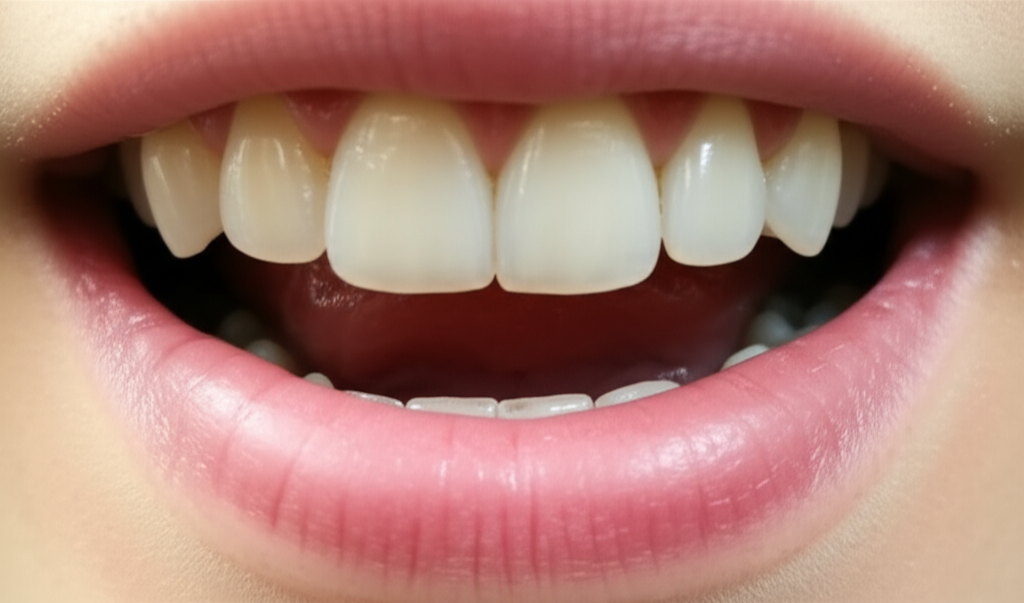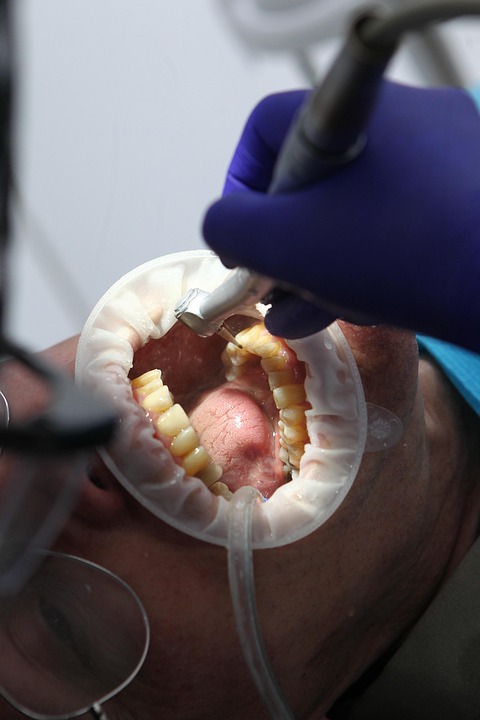
Can Anemia Cause Dental Problems? Understanding the Oral Health Connection
Have you ever wondered if there’s a link between anemia and weird changes in your mouth—like pale gums, a sore tongue, or mouth sores that just won’t go away? Maybe your dentist saw something odd and sent you for a blood test, or you already know you have anemia and want to know how it might affect your teeth and gums. You’re not alone. A lot of people are surprised to find out just how much your mouth shows what’s happening in the rest of your body—especially when it comes to blood problems like anemia.
In this article, I’ll explain in plain, simple words everything you need to know about anemia and how it affects your mouth. We’ll bust some myths, answer your biggest questions, and give you tips to take care of your teeth and health. You’ll see what signs to watch for, why they happen, and what you can do about them.
Table of Contents
- The Link Between Anemia and Oral Health: A Clear Connection
- Specific Dental and Oral Problems Linked to Anemia
- Why Anemia Affects Your Mouth: The Underlying Mechanisms
- Identifying Anemia-Related Dental Symptoms: When to Seek Professional Help
- Managing Anemia for Better Oral Health
- Prevention: Protecting Your Oral Health from Anemia’s Effects
- Conclusion: Prioritizing Your Oral and Overall Health
- FAQs
The Link Between Anemia and Oral Health: A Clear Connection
What Is Anemia?
Anemia is when your blood doesn’t have enough healthy red blood cells or hemoglobin. Basically, your body has trouble bringing oxygen everywhere it’s needed—including your mouth. There are many kinds of anemia, but the ones that most often cause mouth problems are iron deficiency anemia and Vitamin B12 deficiency anemia (also called pernicious anemia). Some others, like folate deficiency anemia, matter too.
It sounds like just a blood thing, but here’s the thing: problems in your mouth can be one of the first ways your body lets you know something is wrong inside.
Why Does Your Mouth Show Health Problems So Fast?
The tissue in your mouth—like your gums, your tongue, and inside your cheeks—grows and fixes itself really fast. These parts need a good supply of oxygen and nutrients every day. If your blood can’t keep up, your mouth may be one of the first places to show it.
How Does Anemia Affect Your Mouth?
There are two ways:
So, when you feel tired, your mouth feels it too.
Specific Dental and Oral Problems Linked to Anemia
It’s not just “dental problems”—some mouth symptoms are warning signs. Let’s go over the most common ones:
Pale Gums and Mouth Tissues
Have you noticed your gums look lighter or almost white instead of pink? Pale gums often mean less blood is getting there—a classic sign of anemia. Healthy gums should look nice and pink.
Glossitis (Sore, Smooth Tongue)
Does your tongue hurt, feel swollen, or look shiny and smooth (instead of rough)? You could have glossitis—common with iron or B12 problems. Sometimes your tongue turns really red or even burns.
#### Quick story:
A patient named Aisha came in saying some foods tasted odd and her tongue hurt with spicy food. We saw her tongue was very smooth. A blood test showed low B12. Once she got treatment, she felt better over time.
Angular Cheilitis (Cracks at Mouth Corners)
Those painful cracks at the sides of your mouth (angular cheilitis) aren’t just from dry air. They are often because of anemia—mostly iron or B vitamin problems—which can let germs cause little infections there.
Oral Candidiasis (Thrush)
See white patches in your mouth that scrape off? It might be oral candidiasis (thrush). Anemia makes your defenses weak, so fungus can grow more easily.
Burning Mouth Syndrome
Some people feel a constant burning in their mouth (often the tongue or top of the mouth) and there’s no clear reason. Low iron or B12 can play a part in burning mouth syndrome. It’s real—and anemia may be the cause.
Xerostomia (Dry Mouth)
A dry, sticky feeling in your mouth is annoying and puts you at risk for getting cavities, bad breath, and trouble eating. Anemia can cut down how much spit you make, causing dry mouth.
More Gum Problems (Gingivitis & Periodontitis)
People with anemia get gingivitis (red, bleeding gums) and periodontitis (serious gum infection making bone shrink) more often. Your mouth just can’t fight germs as well when you’re low on important nutrients.
Recurrent Mouth Ulcers (Canker Sores)
Do you get a lot of painful canker sores? Anemia makes these more common and healing takes longer.
Slow Wound Healing
Have you ever had a tooth pulled or a cut in your mouth that seemed to take forever to heal? Anemia slows things down—sometimes healing takes 20-30% longer.
Change in Taste
If things taste odd or bland all the time, it could be anemia. Problems with iron or vitamins can change your sense of taste.
Here’s a recap table:
| Symptom | Linked Anemia/Nutrient Problem | Why It Happens |
|---|---|---|
| Pale gums | Almost all types, especially iron | Less blood flow, less red cells |
| Sore, smooth tongue | B12, Iron, Folate | Can’t fix cells fast enough |
| Cracked mouth corners | Iron, B vitamins | Weak skin, germs can get in |
| Canker sores | Iron, B12, Folate | Can’t heal fast |
| Gum disease | All types | Weak immune system |
| Burning mouth | Iron, B12 | Nerves or tissue changes |
| Slow healing after dental work | All types | Less oxygen to help heal |
Why Anemia Affects Your Mouth: The Underlying Mechanisms
It doesn’t seem fair, does it? So why does anemia bother your mouth so much? Here’s why:
Not Enough Oxygen for Your Mouth
Red blood cells are like trucks carrying oxygen. If there aren’t enough trucks, or they are empty, your mouth tissues get low on supplies fast. Without oxygen, the cells in your gums, tongue, and cheeks can’t heal or defend themselves.
Trouble Making and Repairing Cells
Iron, B12, and folate aren’t just random vitamins—they help your body make new cells in your mouth (and all over). If you don’t have enough, the lining inside your mouth gets damaged more easily and takes longer to fix. It’s like trying to fill a hole in the road with only half the stuff you need—you get cracks and holes more often.
Weaker Immune System
A good immune system keeps germs in your mouth under control, stopping bacteria and fungus (like thrush or gum disease) from causing trouble. Anemia weakens these defenses, so infections happen more easily and stick around longer.
Nerve Problems From Low Vitamins
Some vitamins (like B12) are needed for healthy nerves. If you don’t get enough, you might have burning, tingling, or numbness in your mouth or tongue—symptoms you see in burning mouth syndrome.
Main thing: If you have anemia, your mouth is working extra hard, often without enough help.
Identifying Anemia-Related Dental Symptoms: When to Seek Professional Help
It’s easy to ignore mouth problems and just think “it’s just a canker sore” or “just a dry mouth.” But some signs should make you think about more.
What to Watch For at Home
- Gums that lose their pink color and look pale or white
- Tongue that looks strange, too smooth, red, or hurts
- Cracks at the sides of your mouth that don’t get better
- White patches or spots inside your mouth
- Burning, tingling, or numb feeling on your tongue, lips, or mouth roof
- Constant dry mouth
- Mouth sores that keep coming back or won’t go away
- Gums that bleed easily, even with soft brushing
- Scrapes or wounds in your mouth that heal slow
Just one small sore isn’t usually a big deal, but if you notice a few of these symptoms—especially along with feeling tired or having weak nails—that’s a reason to check in with your doctor or dentist.
The Dentist’s Role
Dentists are often the first to notice signs of anemia during checkups—sometimes even before your doctor does. For example, your dentist might spot pale gums or a sore tongue and suggest a blood test. This is why regular dental visits matter.
When to See Your Doctor
If your dentist thinks you may have anemia, or you see these symptoms yourself, talk to your doctor about:
- Blood tests, like a CBC (complete blood count)
- Tests for iron, B12, and folate levels
- Other tests if you have long-term health problems or special diets
Finding the problem early helps you take care of anemia and your mouth before things get worse.
Managing Anemia for Better Oral Health
Good news: getting your blood healthier helps your mouth recover, and the other way around, too. Here’s what you can do.
Treating the Anemia
#### Change What You Eat
What you eat really matters. Lean meats, leafy greens, beans, cereals with added nutrients, eggs, and dairy can help with common deficiencies. If you’re vegan or vegetarian, eat iron-rich plant foods and foods with added B12.
#### Take Supplements
Sometimes, food isn’t enough:
- Iron supplements can boost low iron.
- B12 supplements or shots may be needed if food alone isn’t enough.
- Folate supplements if your food or a health problem makes you low on it.
If your body doesn’t absorb these well (like with celiac disease or after certain surgeries) you need to treat that, too.
#### Treat Other Health Problems
Some people get anemia from long-term problems (like kidney disease or gut issues). It’s just as important to control those illnesses.
Special Oral Care for People With Anemia
Your mouth will need a little more attention:
- Gentle Brushing & Flossing: Don’t brush too hard. Use a soft toothbrush and be gentle to avoid bleeding.
- Mouthwash Without Alcohol: This cleans but doesn’t sting or dry out your mouth.
- See Your Dentist Often: It’s better to catch problems early. Tell your dentist you have anemia.
- Treat Dry Mouth: Drink water often. Chew sugar-free gum. If needed, try products that replace saliva.
- Treat Mouth Sores: Use antifungal medicine for thrush; special gels or mouthwashes for ulcers; ice chips for burning.
Pro tip: If you need things like crowns or dentures, go to clinics that know how to help people with health problems. Labs such as a crown and bridge lab can work with your dentist for the best fit and comfort.
Prevention: Protecting Your Oral Health from Anemia’s Effects
It’s better to stop problems before they start. Here’s how:
Eat Well and Take Care of Yourself
Eat a mix of foods with:
- Iron: red meat, spinach, lentils
- Vitamin B12: meat, eggs, dairy, plant milks with B12 added
- Folate: beans, leafy greens, oranges
Drink enough water, skip mouthwash with a lot of alcohol, and try to avoid smoking and heavy drinking, which dry your mouth out.
Get Checked Early and Often
If you’re at risk for anemia (because of family history, pregnancy, long illness, or a special diet), get blood tests regularly and keep your doctor updated. The sooner you find anemia, the fewer mouth problems you’ll have.
Dentists and Doctors Should Work Together
Think of your dentist and doctor as a team. Share your health news with both, so they can adjust your care. For example, your dentist might do gentler cleaning or plan dental work when your blood is in good shape.
If you need things like dentures, labs like a removable denture lab can make appliances that won’t bother sensitive mouths.
Special Cases
- Kids and Pregnant Women: These groups get anemia more easily—and it can affect their teeth and gums more.
- Vegans and Vegetarians: If you don’t eat animal foods, B12 can be hard to get. You might need regular supplements and checkups.
- Long-Term Illness: If a disease causes your anemia, your doctor and dentist will need to work together and make a plan that fits you.
Want more on your teeth and health? You can check out this helpful guide about teeth health.
Conclusion: Prioritizing Your Oral and Overall Health
Your mouth can be a window that shows what’s happening inside you. Anemia doesn’t just make you tired; it can show up on your gums, tongue, and more. Left alone, it makes every mouth problem tougher—like cavities, gum disease, slow healing, and more infections.
But here’s what matters: knowing all this helps you notice problems early, get the right care, and keep yourself healthy—inside and out.
Quick Takeaways
- Anemia really can cause mouth and dental problems—think pale gums, sores, dry mouth, slow healing, and more.
- It happens because your mouth needs plenty of oxygen-rich blood to stay healthy.
- Seeing your dentist regularly, eating right, and treating your anemia are huge for preventing mouth problems.
- If you notice changes in your mouth that stick around, see your dentist or doctor—and tell both about your anemia.
Ready to act? If something’s not right, or you just want to be sure, make a dental appointment. And tell them if you have anemia—they’ll know how to help.
For more easy tips on keeping your mouth healthy, have a look at dental care.
FAQs
Can iron deficiency cause bleeding gums?
Yes. Iron helps your gums get strong and fight germs. If you’re low on iron, your gums get weaker and can bleed more easily—especially when you brush or floss.
Is a pale tongue always a sign of anemia?
Not always! Other things—like problems with blood flow, some infections, or just being dehydrated—can cause this too. But if your tongue is always pale, and you have other symptoms like feeling tired, get it checked by your doctor or dentist.
What vitamins matter for your mouth and for stopping anemia?
Iron, vitamin B12, and folate are all important. They help you make healthy blood and keep your mouth tissues strong. If you’re missing these, you can get both anemia and mouth problems.
Can anemia affect kids’ teeth?
Yes. Bad anemia in kids can delay teeth coming in, hurt the enamel, and even make cavities more likely. Good food and quick treatment make a big difference.
If I fix my anemia, will my mouth get better?
Often, yes—a lot of mouth problems get better when your blood is back to normal. But sometimes, you may also need dental treatment for things like infections or bad gum disease. That’s why it’s best when your dentist and doctor work together.
Want to Learn More?
- Find out how other health problems affect your teeth in our dental diseases section.
- Curious about how teeth work? See teeth information for more answers.
- Looking for modern dental help from a trusted lab? Check our digital dental lab for more options.
Every healthy smile starts with you. By knowing how anemia and oral health are connected, you can take a more active role in staying well. Don’t wait—talk it over with your dental or medical team. Your mouth, and your whole body, will thank you.
Medically reviewed and checked for accuracy so you get the best, most useful advice.








